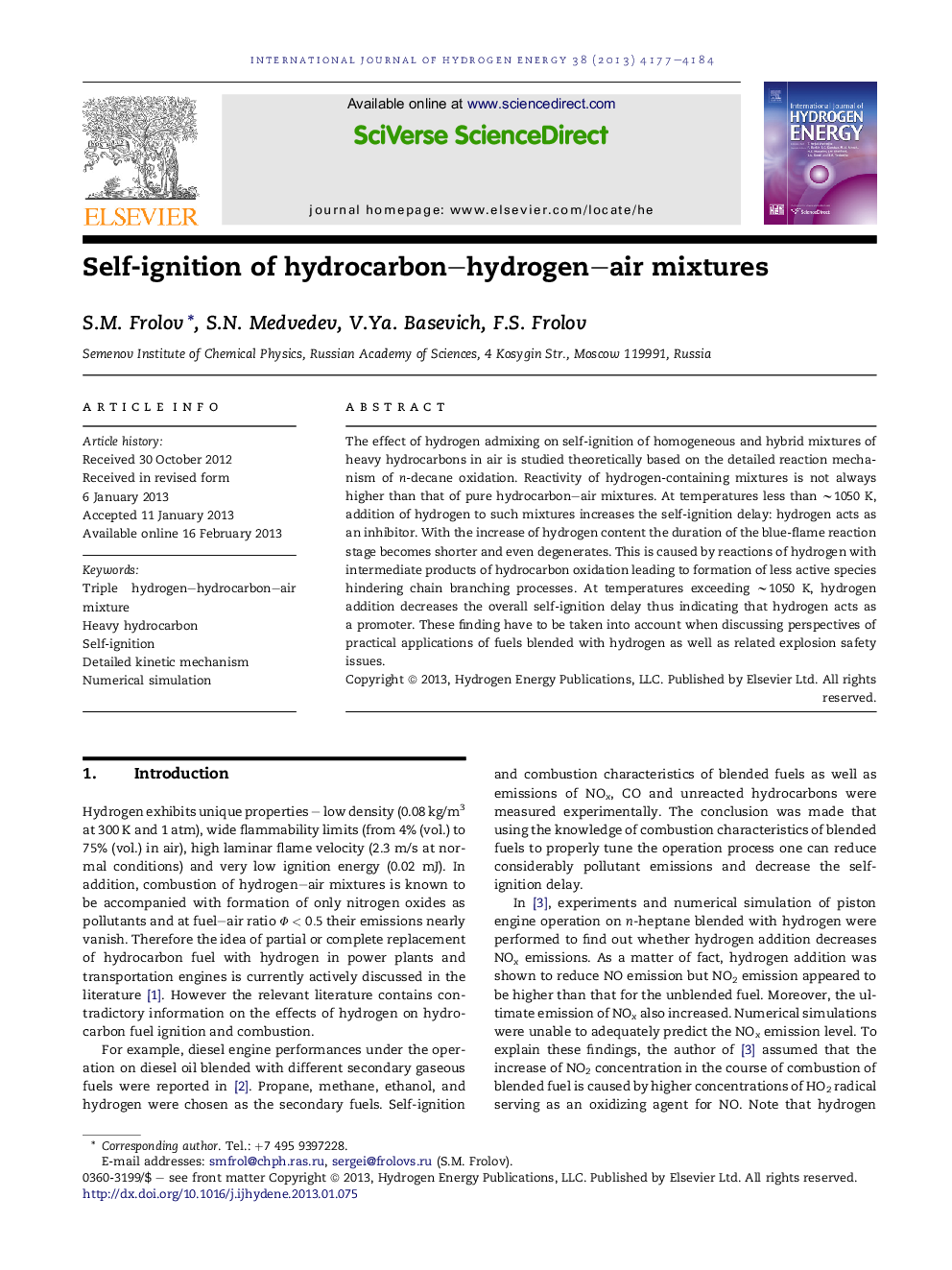| Article ID | Journal | Published Year | Pages | File Type |
|---|---|---|---|---|
| 1281882 | International Journal of Hydrogen Energy | 2013 | 8 Pages |
The effect of hydrogen admixing on self-ignition of homogeneous and hybrid mixtures of heavy hydrocarbons in air is studied theoretically based on the detailed reaction mechanism of n-decane oxidation. Reactivity of hydrogen-containing mixtures is not always higher than that of pure hydrocarbon–air mixtures. At temperatures less than ∼1050 K, addition of hydrogen to such mixtures increases the self-ignition delay: hydrogen acts as an inhibitor. With the increase of hydrogen content the duration of the blue-flame reaction stage becomes shorter and even degenerates. This is caused by reactions of hydrogen with intermediate products of hydrocarbon oxidation leading to formation of less active species hindering chain branching processes. At temperatures exceeding ∼1050 K, hydrogen addition decreases the overall self-ignition delay thus indicating that hydrogen acts as a promoter. These finding have to be taken into account when discussing perspectives of practical applications of fuels blended with hydrogen as well as related explosion safety issues.
► We study self-ignition of gas and droplet hydrocarbon–hydrogen–air mixtures. ► Detailed reaction mechanism of n-decane oxidation is used. ► At temperature less than 1050 K hydrogen inhibits self-ignition of hydrocarbons. ► At temperature higher than 1050 K hydrogen promotes self-ignition of hydrocarbons. ► These findings are important for hydrogen safety issues and applications.
